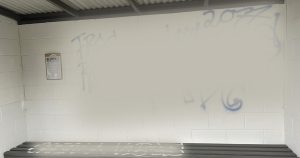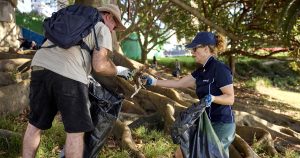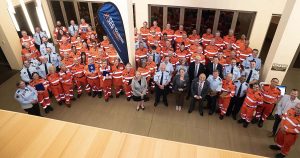By John Alden
On 9 August the IPCC (Intergovernmental Panel on Climate Change) released a major report of enormous importance to ourselves, our children, and future generations.
The report was titled “Climate Change 2021 – The Physical Science Basis” and is part of the 6th Assessment Report by the IPCC. The report draws on the expertise of hundreds of authors and the work of thousands of scientists around the world and represents the ultimate authority on the topic.
So, what does it say and what does it mean for our community? The following attempts to provide some basic background and present some key conclusions.
The Basics:
• Our planet’s climate is changing, and the changes are “widespread and rapid” as a result of the warming of the planet.
• “It is unequivocal that human influence has warmed the atmosphere, ocean and land”, by releasing greenhouse gases into the atmosphere.
• Carbon dioxide (CO2) is the most significant greenhouse gas followed by methane (CH4) (the main constituent of natural gas).
• Oceans are becoming more acidic due to the effects of dissolved CO2.
The Current Situation:
The Royal Commission into Natural Disasters confirmed that Australia’s unprecedented drought and bushfire season of 2019-20 was contributed to by global warming and advises that “Australia’s disaster outlook is alarming”.
The effects of global warming are also driving multiple events such as extreme drought and wildfires in California, northwest USA, western Canada, Alaska, Siberia, and across Europe, and unprecedented rainfall and flooding events in Europe.
The effects of global warming are also evident in the retreat of glaciers around the world, rapid ice loss from the Greenland ice sheet, loss of arctic sea ice during summer, and the melting of permafrost in arctic regions.
2020 was the hottest year on record globally, and the last 7 years were the hottest 7 years on record. The temperature increases are in turn consistent with increasing greenhouse gas concentrations. CO2 concentrations are now “higher than at any time in at least 2 million years” (and much higher than at any time in the last 800,000 years).
Where’s it all heading?
The Paris Agreement is a legally binding international treaty on climate change adopted by 196 Countries on 12 December 2015, which committed the signatories to take action to limit global warming to well below 2.0 degrees and preferably to below 1.5 degrees Celsius, compared to pre-industrial levels.
The 1.5 degrees target was seen as something that our societies could probably adapt to with a manageable level of disruption, and the 2.0 degrees upper limit as a very dangerous threshold that should not be exceeded.
To date action taken has been minimal, with the expansion of emissions swamping any gains made.
The IPCC report describes 5 different possible pathways forward depending on the action taken to reduce greenhouse gas emissions. As a result of past inaction, we are currently on a catastrophic pathway, with drastic and urgent action needed to have any chance of meeting even the very dangerous threshold of 2 degrees.
Australia is one of the highest per-capita emitters in the world, with woefully inadequate climate policies which are completely out of step with our major trading partners. A radical change in approach at the federal level is needed to enable Australia to carry its a fair share of action and avoid serious consequences.
What about our community?
Situated at the northwest edge of Sydney, we are particularly exposed to the effects of heatwaves, drought and bushfires as well as extreme rainfall and flooding events. We need to push hard for effective action.
Do we really need to change?
All changes are uncomfortable and disruptive. However, the most important thing to remember is that change is happening right now in the form of a changing climate, whether we like it or not. Hence we are effectively left with two choices:
a) Do nothing (or too little) and consign our future generations to a dysfunctional world.
b) Embrace the need for change, get on with it, and grasp the opportunities that come with that change (or others will).
In terms of cost, doing nothing (or too little) involves an almost infinite cost as our society fails to cope with escalating extreme and destructive events and crippling financial losses.
The time for denial or prevarication is long gone. We should all demand urgent action by our leaders, for the sake of our children and future generations.
If you’d like more information on this topic please feel free to email Hornsby Shire Climate Action at: [email protected] for a copy of the IPCC summary report and assistance with any other queries that you might have.







